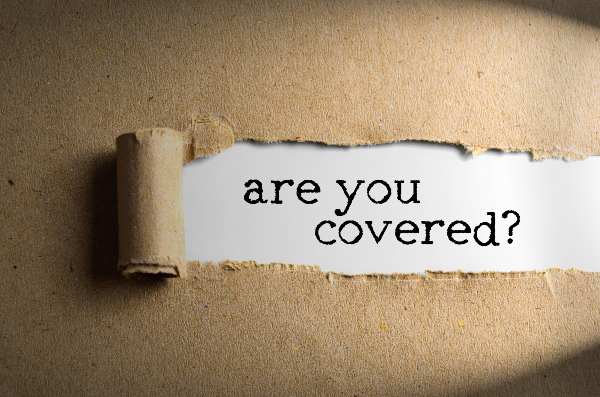What is Business Insurance?
Business insurance is a type of insurance policy designed to protect businesses from financial losses due to unexpected events, such as property damage, liability claims, and business interruption. There are several types of business insurance policies, including general liability insurance, property insurance, professional liability insurance, workers' compensation insurance, and business interruption insurance.
General liability insurance typically covers claims arising from bodily injury, property damage, and advertising injury. Property insurance covers damage to the physical property of a business, such as buildings, equipment, and inventory. Professional liability insurance protects businesses from claims arising from errors and omissions in professional services provided by the business.
Workers' compensation insurance provides benefits to employees who are injured or become ill as a result of their job. Business interruption insurance provides coverage for lost income and expenses if a business is forced to close due to an unexpected event, such as a natural disaster or a fire.
Business insurance can help provide peace of mind to business owners, as it can protect their businesses from potentially devastating financial losses. It is important for business owners to carefully assess their risks and obtain appropriate insurance coverage to protect their businesses.
Business insurance types:
There are several types of business insurance policies that a business owner may consider depending on their specific needs and the type of business they operate. Some common types of business insurance include:
- General liability insurance: This type of insurance protects businesses against claims of property damage, bodily injury, and personal injury resulting from their operations, products, or services.
- Property insurance: This covers damages to a business's physical property, such as buildings, equipment, inventory, and furniture. It also covers losses caused by events such as fire, theft, or vandalism.
- Business interruption insurance: This type of insurance provides coverage for lost income and operating expenses in the event that a business is forced to close temporarily due to a covered event, such as a natural disaster.
- Professional liability insurance: Also known as errors and omissions insurance, this policy protects businesses against claims of negligence or errors in professional services provided to clients.
- Workers' compensation insurance: This insurance provides benefits to employees who suffer work-related injuries or illnesses, including medical expenses and lost wages.
- Cyber liability insurance: This policy protects businesses against losses resulting from cyber-attacks, such as data breaches or hacking attempts.
- Directors and officers liability insurance: This type of policy protects the directors and officers of a company from claims arising from their actions or decisions made in the course of their duties.
General liability business insurance:
General liability insurance is a type of insurance policy that covers a wide range of potential liabilities faced by businesses. It provides coverage for claims of bodily injury, property damage, and personal injury resulting from a business's operations, products, or services. Here are some unique details about general liability insurance:
Coverage for third-party claims: General liability insurance provides coverage for claims made by third parties, such as customers, vendors, or visitors to the business premises. This coverage applies whether the claim arises from an accident, a product defect, or other liability.
Legal defense coverage: In addition to covering the cost of damages or settlements resulting from covered claims, general liability insurance also covers legal defense costs, including attorney fees and court costs. This is an important feature, as legal defense costs alone can be significant, even if the business is not found liable.
Coverage for advertising injury: General liability insurance also provides coverage for advertising injury, which includes claims of libel, slander, copyright infringement, and other forms of advertising-related harm.
Exclusions and limitations: Like all insurance policies, general liability insurance has exclusions and limitations that may affect coverage. For example, intentional acts and certain types of professional services may not be covered. It's important to review policy terms and exclusions carefully to understand what is and isn't covered.
Limits of coverage: General liability insurance policies typically have both a per-occurrence limit and an aggregate limit. The per-occurrence limit is the maximum amount of coverage available for each individual claim, while the aggregate limit is the total amount of coverage available for all claims during the policy period.
Tail coverage: Businesses that close or sell may need "tail coverage" to provide additional protection for claims that may arise after the policy expires. This coverage is typically an endorsement that extends coverage for a specified period after the policy ends.
Cheap liability business insurance:
While it's important for businesses to have insurance coverage to protect against liability claims, the cost of insurance premiums can be a concern for many business owners. Cheap liability business insurance policies may be a good option for small businesses or those with limited budgets. Here are some unique details about cheap liability business insurance and how it can be very useful:
- Lower premiums: One of the main advantages of cheap liability insurance is that it typically has lower premiums than other types of business insurance. This can be particularly important for small businesses that are just starting out or have limited financial resources.
- Basic coverage: Cheap liability insurance policies often provide basic coverage for common liability risks, such as bodily injury, property damage, and advertising injury. While these policies may not offer the same level of coverage as more comprehensive policies, they can still be very useful for small businesses that face limited liability risks.
- Customizable coverage: Cheap liability insurance policies may also offer the ability to customize coverage to meet the specific needs of a business. For example, a business may be able to add coverage for additional liability risks or increase coverage limits for certain types of claims.
- Protection against lawsuits: Even a small liability claim can be costly for a business if it results in a lawsuit. Cheap liability insurance can help protect a business against the financial burden of a lawsuit by covering legal defense costs and potential damages.
- Compliance with legal requirements: Some states and industries require businesses to carry liability insurance as part of their legal obligations. Cheap liability insurance policies can help businesses meet these requirements without breaking the bank.
In summary, while cheap liability insurance policies may offer more limited coverage than more comprehensive policies, they can still be very useful for small businesses that face limited liability risks and have budget constraints. By providing basic coverage and customizable options, these policies can help protect businesses against the financial burden of liability claims and lawsuits.
Small business insurance helpful:
Small business insurance is an essential part of protecting your business from various risks and uncertainties. Here are some helpful details to consider when looking for small business insurance to get the most benefits:
Assess your business risks: The first step in getting the most benefits from small business insurance is to assess your business risks. Consider the type of business you operate, the products or services you provide, and the potential risks and liabilities you face. This will help you choose the right type of insurance coverage to protect your business.
Choose the right insurance policies: Once you have assessed your risks, it's important to choose the right insurance policies to protect your business. Common types of insurance for small businesses include general liability insurance, professional liability insurance, property insurance, and workers' compensation insurance.
Work with an experienced insurance broker: An experienced insurance broker can help you navigate the complex world of small business insurance and choose the right policies for your business. They can also help you find affordable premiums by comparing policies from multiple insurers.
Review your policies regularly: It's important to review your insurance policies regularly to ensure that your coverage is up-to-date and adequate for your business needs. As your business grows or changes, you may need to adjust your coverage accordingly.
Understand the claims process: In the event of a loss or liability claim, it's important to understand the claims process for your insurance policies. Be familiar with the deadlines for filing a claim, the documentation required, and the steps involved in the claims process.
Consider bundling policies: Many insurers offer discounts for bundling multiple insurance policies, such as combining general liability and property insurance. Bundling can help you save money on premiums while providing comprehensive coverage for your business.
In summary, small business insurance can provide important benefits and protection for your business. By assessing your risks, choosing the right policies, working with an experienced broker, reviewing policies regularly, understanding the claims process, and considering bundling policies, you can get the most benefits from your small business insurance.





No comments:
Post a Comment
If you have any problems or queries, please feel free to ask.